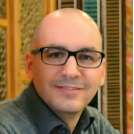Digital Responsibility (DR) is a recently emerged concept that highlights the values, norms, and principles that guide organizations and individuals in the ethical design, development, implementation, and use of digital technologies. Far from being abstract, ethical issues of the widespread digitalization are already impacting our everyday lives in private and professional contexts. DIRECT aims to promote the responsible use of digital technologies for the benefit of all members of our society and the environment through education and training. The project is formed by an engaged consortium that reflects the diversity of educators and learners from schools, higher education, VET, and enterprises.
In collaboration with educators, subject matter experts on DR, and edtech designers, the role of the postdoc will be to:
- Design of innovative pedagogical methodologies for learning pathways that support self-paced learning and self-regulation. For example, case-based learning, worked examples, peer feedback, and scaffolding elements could inform the design of the modules to provide meaningful and engaging learning experiences to the audience;
- Develop learning modules in close collaboration with content providers and subject matter experts. Modules could integrate open/free available material with newly produced material to meaningful and self-contained learning experiences that would address the learning goals of the modules. The learning modules will be mapped against the ECTS and ECVET frameworks so that they will be easy to integrate into HE/VET curricula;
- Design assessment processes that would be aligned with EU and national frameworks for knowledge, skills, and competencies levels (i.e., EQF/NQ EQAVET, ESCO). Since the modules will focus both on the development of skills and the acquisition of knowledge, the assessment process will include a range of assessment items to evaluate the learning experience of the participants and certify their progress.
The project involves 8 partners from 6 European countries (Netherlands, Greece, Switzerland, Spain, Slovenia, and Bulgaria). The project is coordinated by the Aristotle University of Thessaloniki, while the University of Twente is leading tasks related to the design and evaluation of online learning experiences.
Finally, the project can offer high opportunities for visibility, networking, and traveling to the postdoc. Upon discussion, teaching duties (e.g., student supervision) can be agreed upon, especially if the postdoc would like to develop a teaching portfolio.
For more information on the DIRECT project: https://erasmus-plus.ec.europa.eu/projects/search/details/101139849
Information and application
Are you interested to be part of our team? Please submit your application before 20 May 2025 and include:
- A cover letter (maximum 2 pages A4), emphasizing your specific interest, qualifications, and motivations to apply for this position;
- A Curriculum Vitae, including a list of publications and references;
- A writing sample (e.g., a published academic article or a chapter of your dissertation);
- Contact information for two academic references (Please note, we will not contact these references before notifying the candidate that we intend to do so).
For inquiries, please contact Dr Pantelis M. Papadopoulos at p.m.papadopoulos@utwente.nl
About the department
The position is located in the Instructional Technology (IST) section of the Learning, Data Analytics, and Technology Department of the Faculty of Behavioural, Management, and Social Sciences of the University of Twente, the Netherlands.
About the organisation
At the Faculty of Behavioural, Management and Social Sciences (BMS), we unite the worlds of people and technology to address today’s complex societal challenges. We are passionate about understanding human behaviour, fostering responsible innovation, and designing solutions that create societal value. Our educational programmes span disciplines such as Psychology, Business Administration, Public Administration, Communication Sciences, Philosophy, Educational Sciences, and Health Sciences. Through our bachelor’s and master’s degrees, Professional Learning & Development programmes, and interdisciplinary research themes – including Emerging Technologies & Societal Transformations, Resilience, Smart Industry, Learning, and Health – we empower students and researchers to make a positive societal impact.
At BMS, we combine critical thinking with practical action. From advancing sustainable mobility with innovations like the world’s most efficient hydrogen car to shaping policies that promote digital inclusion, our work contributes to a healthier, fairer, and more sustainable future. Whether it’s exploring how technology influences human behaviour or leveraging data and innovation to transform industries and communities, we ensure that technology serves people – and not the other way around.
As an employer, BMS offers a vibrant, inclusive, and entrepreneurial environment where you can thrive personally and professionally. Join us and become part of a forward-thinking community that equips you to shape the future – for yourself and society. With us, you will become part of a leading technical university with increasing, positive social impact.



